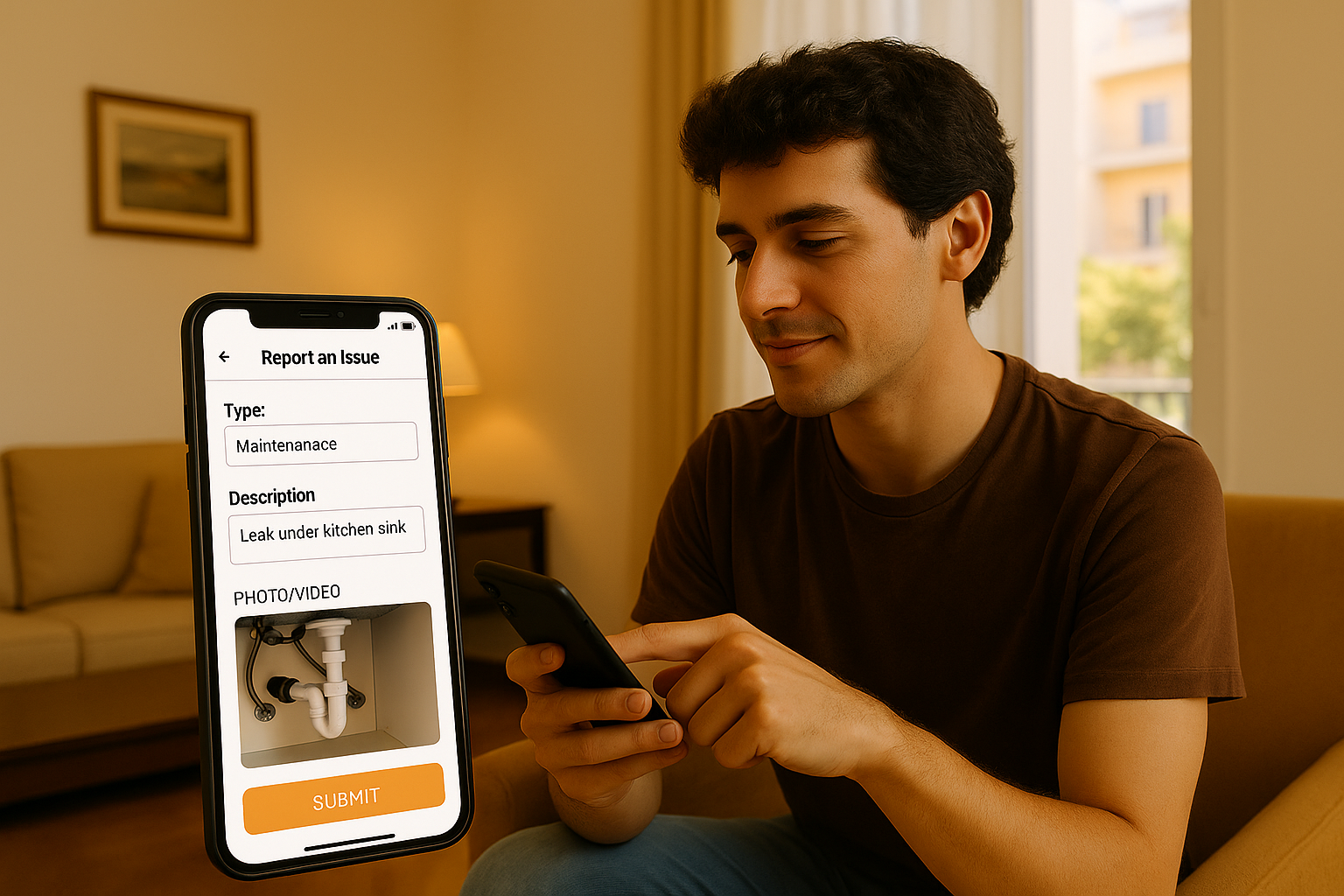Your Final Erasmus Checklist: Packing, Paperwork & Pre‑Flight Must‑Dos for Athens
/Pack smart and get ready to take off — your Erasmus adventure starts now
You’re just a few days away from boarding a plane to Athens.
Your friends think you’re on top of things because you’ve booked a flight and bragged about your future Acropolis selfies.
Here’s a reality check:
If you don’t prepare right now... you’ll land in Greece with jetlag, a dead phone, and a Greek pharmacist miming “diarrhea” at you.
And guess what – it’s completely avoidable.
This is your no‑fluff guide to packing, paperwork and pre‑flight essentials.
It’s long because it has to be.
Most Erasmus checklists online are written like your aunt’s Facebook status: vague, polite, and completely unhelpful.
We're here to tell you exactly what to take, what to leave behind, and how to avoid rookie mistakes.
Why Preparation Matters
The next nine months will be some of the best in your life – if you don’t derail them before you even land.
Simple things like forgetting a power adapter or the wrong health insurance document can snowball into days of stress, unnecessary expenses... and homesickness.
Your Erasmus adventure should start in a classroom or at the beach – not in a cell phone store arguing with a bored Greek clerk.
Preparation isn’t about being uptight. It’s about freeing yourself to experience Athens fully.
Read on, take action, and you’ll fly in like a seasoned pro instead of a panicked tourist.
Essential Documents – The “If You Forget These, Good Luck” List
Passport and Visa (or Residence Permit)
Your passport must be valid for at least six months after your return date.
Make two photocopies: one to keep with you (stored separately from the passport) and one to leave at home with a trusted person.
If you’re a non‑EU student, ensure you’ve got the proper Greek visa or residence permit approval.
It sounds obvious, but border guards have turned away students for having the wrong type of visa stamped. Read your university’s instructions twice.
Erasmus Paperwork
Your acceptance letter and Learning Agreement aren’t just bureaucratic fluff.
They prove your student status when applying for discounts, getting a Greek tax number (AFM) or registering for a residence permit. Print and keep them handy.
Proof of Accommodation
Many landlords will give you a simple contract. Others might email you a PDF.
Whatever it is, print a copy!
You’ll need it for student registration, immigration purposes and occasionally when opening a bank account.
It’s one thing you don’t want to dig out of an inbox when you need it.
Health Insurance Documents
You need a European Health Insurance Card (EHIC) if you’re an EU citizen, or proof of private insurance if you’re not.
Bring a physical card or paper copy; authorities may ask for it when issuing residence permits. Also pack any medical records or prescriptions you might need.
Extra Copies & Cloud Backups
Photocopy everything important.
Then photograph them and upload to a secure cloud folder (Google Drive, iCloud).
If you lose your bag or have your documents stolen, you can access digital copies instantly. Y
our future self will thank you.
Money Matters – Cash Isn’t Dead (Yet)
Bring at least two forms of payment.
Greece is modern, but kiosks and small cafés still prefer cash.
Some tips:
Debit/Credit Card: Bring one that doesn’t charge foreign transaction fees. Revolut or N26 cards are popular with students. Notify your bank you’re travelling to Greece to avoid card blocks.
Cash: Get €200–€300 in cash before departure. Break it into small bills – €5, €10, €20 – because a kiosk won’t change your €100 note. Don’t keep all cash in one place; stash some in your carry‑on, some in your suitcase.
Keep Cards Separate: Losing a wallet full of cards is a nightmare. Carry a backup card in a separate pocket or bag.
Tech & Gear – Don’t Be a Digital Castaway
Unlocked Smartphone and Charger
If your phone is locked to a non‑EU carrier, unlock it before you leave.
You’ll want to pop in a Greek SIM card or use an eSIM to avoid obscene roaming fees.
Pack a charger, obviously, and consider a second cable – they tend to disappear in shared flats.
Power Adapter (Type C/F)
Greek sockets use two round pins and 220V.
Get a universal adapter with multiple USB slots.
They’re cheap at home and expensive in airports.
Portable Battery Pack
Flights get delayed, buses break down, and your phone will die when you’re lost.
A compact 10,000mAh power bank will save your sanity.
Laptop and Charger
Yes, there are computer labs.
But you’ll want the freedom to work at cafés or travel.
Make sure your charger works with 220V (most do). Back up your files before leaving.
Headphones
For long flights, loud roommates and studying in crowded cafeterias.
Wireless ones are great; pack the cable anyway.
SIM Card or eSIM Plan
Consider ordering an eSIM plan in advance from providers like Airalo or SimOptions.
Alternatively, you can pick up a local SIM (Cosmote, Vodafone or Nova) at the airport or in town.
You’ll need your passport. Prepaid packages start at around €10–€15 for 10GB of data.
Clothing & Personal Items – Pack Smart, Not Heavy
Climate Reality Check
Athens summers are hot.
The early fall is still 25–35°C.
Winters can be mild (10–15°C) but damp.
Don’t pack heavy winter coats; one good jacket and layers will do.
What to Pack:
Lightweight T‑shirts and breathable tops. Cotton and linen are your friends.
A couple of pairs of jeans or trousers. For classes and going out.
Comfortable walking shoes. You’ll be on your feet exploring. Consider a pair of sandals for the beach.
One semi‑formal outfit. Greeks dress up for certain occasions – think nice dinners or presentations.
Sweaters and light jackets. Evenings get cool in October and later.
Sleepwear & loungewear. You will be sharing space; respect yourself and your roommates.
Socks and underwear. Bring enough for 10–14 days. Washing machines exist, but you’ll be busy.
Workout gear. If you plan on hitting a gym or running, pack appropriate clothing.
Swimwear. Greek beaches deserve your swimsuit.
What NOT to Pack:
Bulky coats and boots. Unless you plan to travel to northern Europe.
Too many shoes. One pair of sneakers, one pair of boots (for winter), one pair of sandals is plenty.
Your entire closet. You’ll buy cheap, stylish clothes in Greece. Save room for new finds.
Bedsheets & Towels
Many student apartments (including some from private landlords) do not provide linens.
Pack a single bed sheet set, a pillowcase and one towel. Microfiber towels dry quickly and take up little space.
You can buy more later if needed.
Toiletries & First Aid
Bring a small bag with:
Toothbrush, toothpaste, deodorant and personal hygiene products.
Travel‑size shampoo and shower gel – enough to last a week until you find your favourite Greek brands.
Razor and shaving gear.
Prescription medications and copies of your prescriptions. Bring enough to cover at least the first month.
Painkillers (paracetamol or ibuprofen), antihistamines, Imodium (trust us). Greek pharmacies are great, but not open at midnight.
A small sewing kit and nail clippers. Yes, you’ll need them.
A basic first aid kit: band‑aids, disinfectant wipes, tweezers.
Personal Items
Photos from home. Tape them to your wall – it helps with homesickness.
A small gift from your hometown. Useful when thanking your landlord or welcoming a new friend.
A reusable water bottle. Athens tap water is safe. Stay hydrated without buying plastic.
Reusable shopping bag. Plastic bags cost extra and eco‑awareness is cool.
Apps & Information You’ll Need
Google Translate (Greek offline pack). Essential for signs and conversations.
OASA Telematics or Google Maps. For navigating bus and metro schedules.
Revolut/N26 apps. Manage your money instantly.
eFood or Wolt. Greek equivalents of Uber Eats – you’ll want them on lazy nights.
Duolingo/Memrise (Greek course). Start learning basic phrases before you arrive.
Pre‑Flight To‑Do List – The Grown‑Up Stuff
Check your passport’s expiration date and visa requirements. Renew or fix any issues immediately.
Print your boarding pass and accommodation confirmation. Keep them in an accessible folder.
Notify your bank about your trip to avoid suspicious transaction blocks.
Back up your electronics to cloud or external drives. Theft happens; you’ll survive if your photos live in the cloud.
Call your health insurance provider to confirm coverage abroad and how to claim reimbursements.
Set up a travel alert with friends or family: share your itinerary and emergency contacts.
Download offline maps of Athens via Google Maps.
Register with your embassy (optional but recommended) to receive safety updates.
Arrange airport pickup or decide how you’ll get from the airport to your accommodation. The metro runs from the airport to the city centre; a taxi costs around €35–€40.
Review your lease carefully so you know when rent is due and what’s included (electricity, internet, water). The last thing you want is a surprise utility bill.
Final Thoughts: Start Your Journey on the Right Foot
Preparing thoroughly isn’t about being fussy – it’s about ensuring you can focus on what matters: exploring Athens, meeting people, and immersing yourself in Greek culture.
A little effort now prevents a lot of stress later.
At RoomsAthens, we’ve seen thousands of students arrive unprepared and scramble to find linens or get their visas stamped.
We’ve also watched well‑prepared students glide into their new lives with confidence.
Be that second group.
Make your packing list. Print your documents.
Lock in a comfortable, fully furnished apartment with reliable Wi‑Fi and air conditioning – and you’ll feel like a local in no time.
Your adventure starts before you even step on the plane. Are you ready?




